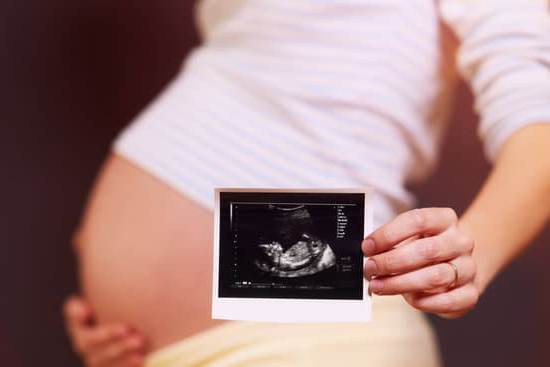Can a little bit of sperm cause pregnancy? Understanding the role of sperm in fertilization is crucial in grasping how pregnancies occur. Sperm, the male reproductive cells, play a fundamental role in the process of conception when they unite with a female egg. This article delves into the intricacies of sperm, their count, survival in the female reproductive system, and the likelihood of pregnancy even with minimal amounts present.
When it comes to causing pregnancy, the number of sperms is a critical factor to consider. Sperm count refers to the concentration of sperm in a man’s ejaculation. A higher sperm count increases the chances of fertilizing an egg successfully. However, even a small amount of sperm can potentially lead to pregnancy under certain circumstances due to their ability to navigate through the female reproductive tract and reach an awaiting egg.
The survival duration of sperm within the female reproductive system further contributes to the possibility of pregnancy with minimal sperm. Sperm can survive for several days post-ejaculation within the woman’s body, increasing the window for potential fertilization to occur. Understanding these aspects is essential for individuals seeking knowledge about fertility and contraception methods to prevent unplanned pregnancies.
Understanding Sperm Count
Sperm count plays a crucial role in determining the likelihood of pregnancy. A higher sperm count increases the chances of successful fertilization as it provides more opportunities for a sperm to reach and fertilize an egg. On the other hand, a low sperm count significantly reduces the probability of conception. This is why understanding sperm count is essential when trying to conceive.
In general, it only takes one healthy sperm to fertilize an egg and lead to pregnancy. However, having a higher sperm count increases the odds of successfully achieving fertilization. The World Health Organization (WHO) has established parameters for normal sperm counts, with anything below that threshold considered low. It’s important to note that even if there is just a small amount of viable sperm present, pregnancy can still occur under the right conditions.
Factors such as overall health, lifestyle choices, age, and underlying medical conditions can all affect sperm count. By maintaining a healthy lifestyle, avoiding harmful habits like smoking and excessive drinking, and seeking medical advice for any fertility concerns, individuals can improve their chances of conception. Additionally, using protection consistently can help prevent unplanned pregnancies by reducing exposure to even a small amount of sperm.
| Sperm Count | Impact on Pregnancy Likelihood |
|---|---|
| High | Increases chances of successful fertilization |
| Low | Reduces probability of conception |
Survival of Sperm
Sperm survival in the female reproductive system is a crucial factor in the likelihood of pregnancy occurring. Understanding how long sperm can survive can provide valuable insights into the window of opportunity for fertilization to take place. Sperm can actually live inside a woman’s body for up to five days, depending on various factors such as the health of the sperm, the environment within the reproductive tract, and the presence of cervical mucus.
To elaborate further on this topic, here are some key points regarding the survival of sperm in the female reproductive system:
- Once ejaculated into a woman’s vagina, sperm must travel through the cervix and into the uterus to reach the fallopian tubes where fertilization typically occurs.
- The acidic environment of the vagina can be detrimental to sperm survival; however, cervical mucus provides a protective barrier and nourishment for sperm to help them reach their destination.
- Even if only a small amount of viable sperm reaches an egg during ovulation, fertilization can occur and lead to pregnancy. Therefore, it is important for individuals engaging in sexual activity to be aware of these facts when considering the risk of pregnancy with minimal sperm present.
Considering these factors, it becomes evident that even a little bit of sperm can indeed cause pregnancy under the right conditions. This highlights the importance of making informed decisions about contraception and understanding how fertility works. By being knowledgeable about sperm survival and fertilization processes, individuals can take proactive steps to prevent unplanned pregnancies effectively.
Fertilization Process
Fertilization is the process by which a sperm cell penetrates an egg and forms a zygote, leading to the development of an embryo. This intricate process requires precise timing and conditions to be successful. When a man ejaculates, the semen containing millions of sperm cells enters a woman’s reproductive system. Only one lucky sperm cell out of the millions will successfully fertilize the woman’s egg.
After ejaculation, sperm cells must travel through the cervix and into the fallopian tubes where they may encounter an awaiting egg. Once a sperm cell reaches the egg, it must penetrate its outer layer before fertilization can occur. This penetration releases enzymes that aid in breaking down the protective barrier around the egg.
If fertilization is successful, the genetic material from the sperm cell combines with that of the egg, resulting in the formation of a zygote. The zygote then undergoes multiple cell divisions as it travels down to the uterus for implantation and further development. It is important to note that this process requires specific conditions and timing, highlighting how only one viable sperm cell can lead to pregnancy.
| Fertilization Process | Details |
|---|---|
| Sperm Journey | Sperm must travel through cervix into fallopian tubes to reach egg |
| Egg Penetration | Sperm must penetrate outer layer of egg for fertilization |
| Zygote Formation | Genetic material from sperm and egg combine to form zygote |
Risk of Pregnancy With a Little Bit of Sperm
When it comes to the question “Can a little bit of sperm cause pregnancy?”, the answer is yes, even a small amount of sperm can play a role in fertilizing an egg and leading to pregnancy. While it is commonly believed that only large volumes of ejaculate can result in pregnancy, the reality is that even a tiny amount of sperm can potentially lead to conception.
Understanding Sperm Motility and Viability
Sperm count, motility, and viability are crucial factors when considering the likelihood of pregnancy with minimal sperm. Sperm motility refers to the ability of sperm to swim effectively towards the egg for fertilization.
Even with low sperm count, if the sperm present are highly motile, they have a higher chance of reaching and fertilizing an egg. Additionally, the viability of sperm plays a significant role as well. Sperm can survive in the female reproductive system for several days, increasing the window of opportunity for fertilization.
The Role of Timing and Ovulation
Timing also plays a critical role in determining whether a small amount of sperm can result in pregnancy. A woman’s fertility window is typically around the time of ovulation when an egg is released from the ovary. If intercourse occurs close to ovulation, even minimal amounts of viable sperm have a greater chance of successfully fertilizing an egg. Understanding ovulation cycles and timing intercourse accordingly can impact the likelihood of conception with minimal sperm.
Potential Impact on Unplanned Pregnancies
It is important to recognize that while the risk may be lower with minimal sperm, there is still a potential for unplanned pregnancies. Factors such as irregular menstrual cycles or unexpected ovulation could increase the chances of conception with even small amounts of sperm present. Therefore, it is essential to practice safe sex and consider using contraception consistently to reduce the risk of unintended pregnancies, regardless of semen volume during intercourse.
Factors Affecting Pregnancy
When it comes to the possibility of pregnancy from just a little bit of sperm, several factors play a crucial role in determining the likelihood of conception. Sperm count is one of the key factors that can significantly impact the chances of pregnancy.
A higher sperm count increases the probability of successfully fertilizing an egg, whereas a lower count may reduce the likelihood of conception. It’s important to note that even a small amount of sperm, if it has good motility and viability, can still lead to pregnancy under the right circumstances.
To further understand how different factors can affect the chances of pregnancy with minimal sperm, let’s explore some key points:
- Quality of the sperm: The quality of sperm, including its motility and shape, plays a critical role in successful fertilization. Healthy and active sperm are more likely to reach and penetrate an egg.
- Ovulation: The timing of ovulation in relation to intercourse is crucial for conception. Sperm can survive in a woman’s reproductive tract for up to five days, so having intercourse near ovulation increases the chances of fertilization.
- Female fertility: The fertility of the female partner also impacts the likelihood of pregnancy. Factors such as age, reproductive health, and hormone levels can affect her ability to conceive even with minimal sperm present.
Considering these factors can provide insight into how even a small amount of sperm can cause pregnancy, highlighting the importance of understanding the complexities involved in daily life decisions regarding contraception and family planning. By being informed about these factors affecting pregnancy, individuals can make informed choices about their reproductive health and well-being while avoiding unplanned pregnancies that could arise from minimal amounts of sperm.
Importance of Protection
Understanding the Importance of Contraception
When it comes to preventing unplanned pregnancies, using contraception is key. While some may wonder if a small amount of sperm can cause pregnancy, it’s important to note that even a tiny number of sperm can lead to fertilization under the right circumstances. This is why taking proactive measures to prevent pregnancy is crucial for individuals who are not ready or do not wish to conceive.
Types of Contraception
There are various methods of contraception available to help individuals avoid unintended pregnancies. These include barrier methods such as condoms, hormonal methods like birth control pills or patches, intrauterine devices (IUDs), and permanent solutions like tubal ligation or vasectomy. Each method has its own effectiveness rate, so it’s important for individuals to discuss their options with a healthcare provider to determine which method is best suited for them.
The Role of Communication in Using Contraception
Effective contraceptive use also relies on open communication between partners. It’s essential for couples to have conversations about their reproductive goals and preferences regarding contraception. By discussing these matters openly and honestly, partners can ensure that they are on the same page when it comes to preventing unplanned pregnancies. Additionally, talking about contraception can help alleviate any concerns or misconceptions one may have about its use, ultimately leading to better protection against unwanted pregnancies.
Conclusion
In conclusion, the question “Can a Little Bit of Sperm Cause Pregnancy?” can be answered with a resounding yes. Sperm plays a crucial role in fertilizing an egg and leading to pregnancy. Understanding sperm count is vital as a higher number of viable sperm increases the likelihood of successful fertilization. It is also essential to recognize that sperm can survive in the female reproductive system for several days, increasing the window of opportunity for fertilization to occur.
While some may wonder if a small amount of sperm can lead to pregnancy, it is important to acknowledge that even a minimal concentration of sperm has the potential to result in conception. Factors such as the health of the sperm, timing of ovulation, and overall fertility levels can impact the chances of pregnancy with limited sperm. Therefore, individuals should be aware of these factors and take necessary precautions if they are not ready for parenthood.
In light of these considerations, it is crucial to emphasize the importance of using protection and contraception to prevent unplanned pregnancies. By understanding the role of sperm in pregnancy and taking proactive measures to safeguard against unwanted conception, individuals can make informed choices about their reproductive health. Ultimately, knowledge and responsible decision-making are key in navigating the complexities of fertility and ensuring reproductive well-being.
Frequently Asked Questions
Is It Possible to Get Pregnant With Small Amount of Sperm?
It is indeed possible to get pregnant with a small amount of sperm. While the chances may be lower compared to a larger amount, even a small number of sperm cells can fertilize an egg and lead to conception.
Can a Small Drop of Sperm Cause Pregnancy?
Yes, a small drop of sperm can cause pregnancy if it contains enough active and healthy sperm cells. It only takes one viable sperm cell to fertilize an egg, so even a small amount can result in pregnancy under the right circumstances.
Can You Still Get Pregnant if He Comes a Little Bit?
You can still get pregnant even if he comes just a little bit, as pre-ejaculate (pre-cum) may contain sperm. The chances may be lower compared to full ejaculation but there is still a possibility of pregnancy if viable sperm are present.

Welcome to my fertility blog. This is a space where I will be sharing my experiences as I navigate through the world of fertility treatments, as well as provide information and resources about fertility and pregnancy.





